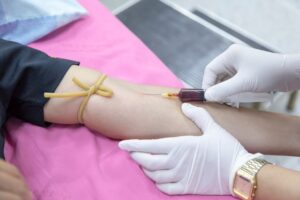
Getting back to normal after a car accident can be challenging. Accidents can happen to anyone, and they bring a whirlwind of emotions, physical injuries, and logistical headaches. This blog post aims to guide you through the process of restoring your life after such an incident. Whether you’re dealing with insurance claims, seeking medical attention, or grappling with the emotional aftermath, this article provides practical advice to help you regain your footing.
The Initial Shock and What to Do First
The moments following a car accident are often filled with confusion and stress. It’s important to stay as calm as possible and take specific steps to ensure your safety and that of others involved.
Firstly, check yourself and any passengers for injuries. Even if you feel fine, remember that some injuries might not be immediately apparent. If necessary, call emergency services right away. Once safety is secured, if possible, move your vehicle out of traffic to prevent further accidents.
Next, exchange information with the other driver. This includes names, contact details, and insurance information. Collecting this data will be crucial when filing an insurance claim and handling any legal matters that may arise.
Seeking Medical Attention
Even if you feel unhurt, it’s critical to see a medical professional after a car accident. Some injuries, like whiplash or internal bleeding, may not manifest symptoms immediately. A thorough medical examination can detect these hidden issues.
Doctors can also document your injuries, which is essential for any insurance claims or legal actions. Keep all medical records and receipts, as they will serve as evidence of the accident’s impact on your health.
Following your doctor’s advice for treatment and recovery is paramount. Adhere to prescribed medications, physical therapy, or any other recommended procedures to ensure a full recovery.
Contacting Your Insurance Company
Informing your insurance company as soon as possible is a necessary step in starting the claims process. Provide them with all the details of the accident, including the information you gathered at the scene.
An insurance adjuster will likely contact you to assess the damage and determine the claim’s value. Be honest and thorough in your communication to avoid any complications or delays in processing your claim.
Keep a record of all correspondence with your insurance company. Notes on phone calls and copies of emails can be invaluable if disputes arise later.
Repairs and Vehicle Replacement
Once your claim is underway, you’ll need to address the repair or replacement of your vehicle. Your insurance company may have preferred repair shops, but you often have the choice to select your own.
Obtain several repair estimates if you can, and compare them to ensure you’re getting a fair deal. Once you’ve chosen a repair shop, follow up regularly to monitor the progress on your vehicle.
If your car is deemed a total loss, your insurance will provide a payout based on the car’s market value. Use this to find a suitable replacement while considering any needs or preferences you may have.
Understanding Legal Implications
Car accidents can sometimes lead to legal issues, especially if there are disputes over who is at fault or if there are injuries. Understanding the legal landscape can help protect your rights and interests.
Consulting with a lawyer experienced in car accident cases can provide valuable insights. They can guide you through the legal process, represent you in disputes, and help ensure you receive fair compensation.
Familiarize yourself with local traffic laws and regulations, as they can affect the outcome of any legal proceedings related to the accident.
Emotional Recovery and Mental Health
The emotional toll of a car accident is often underestimated. Feelings of anxiety, guilt, or depression are common and should be addressed just as seriously as physical injuries.
Seeking support from friends, family, or professional counselors can be incredibly beneficial. Discussing your feelings and experiences helps in processing the event and moving forward.
Practicing self-care, such as engaging in hobbies, exercising, or meditating, can also aid in emotional recovery. Don’t hesitate to reach out for help if you’re struggling to cope.
Rebuilding Confidence on the Road
Getting back behind the wheel after an accident can be daunting. It’s natural to feel apprehensive, but there are steps you can take to rebuild your confidence.
Start by driving short distances in familiar areas. Gradually increase the length and complexity of your trips as you become more comfortable. Taking a defensive driving course can also boost your confidence and improve your driving skills.
Remember that it’s okay to take your time. Pushing yourself too hard can lead to increased anxiety and setbacks in your recovery.
Financial Considerations
Car accidents often bring unexpected financial burdens. Medical bills, repair costs, and potential legal fees can add up quickly. Managing these expenses requires careful planning. While skilled lawyers like those at Roane Law can help you build a case, there’s no guarantee that you’ll win a lawsuit in every situation, so be wise about how much you invest in seeking legal recompense.
Review your insurance coverage and understand what is covered and what isn’t. If you find yourself facing significant out-of-pocket expenses, explore options for financial assistance or payment plans.
Creating a budget to manage your finances during this period can help alleviate stress and ensure you stay on track. Prioritize essential expenses and look for ways to cut costs where possible.
Returning to Work and Daily Routines
Returning to work and resuming daily routines can be a significant step in regaining normalcy. However, it’s important to listen to your body and not rush the process.
Communicate with your employer about your situation and any accommodations you may need. Flexible work hours or remote work options can ease the transition back to your usual responsibilities.
Gradually reintroduce activities and responsibilities into your routine. Pacing yourself prevents burnout and allows for a smoother adjustment.
Preventing Future Accidents
One of the most proactive steps you can take after a car accident is to focus on preventing future incidents. Reflect on the circumstances of the accident and identify any behaviors or conditions that contributed to it.
Commit to practicing safe driving habits, such as avoiding distractions, obeying traffic laws, and maintaining your vehicle. Regular maintenance checks can prevent mechanical failures that could lead to accidents.
Consider investing in advanced safety features for your vehicle, such as collision warning systems or lane departure alerts. These technologies can provide an extra layer of protection on the road.
Moving Forward with Confidence
Recovering from a car accident is a multifaceted process that involves physical, emotional, and logistical challenges. By taking a comprehensive approach and utilizing available resources, you can regain your footing and move forward with confidence.
Remember that every step you take, no matter how small, is progress. Celebrate your achievements, seek help when needed, and prioritize your well-being. With time and effort, you can find normalcy and continue to thrive.
For more personalized guidance on your recovery journey, consider consulting with professionals who specialize in post-accident care and support, like Dr. Keren H. Gomez Chiropractic Physician. Their expertise can provide valuable insights and help you achieve a smoother transition back to everyday life.


